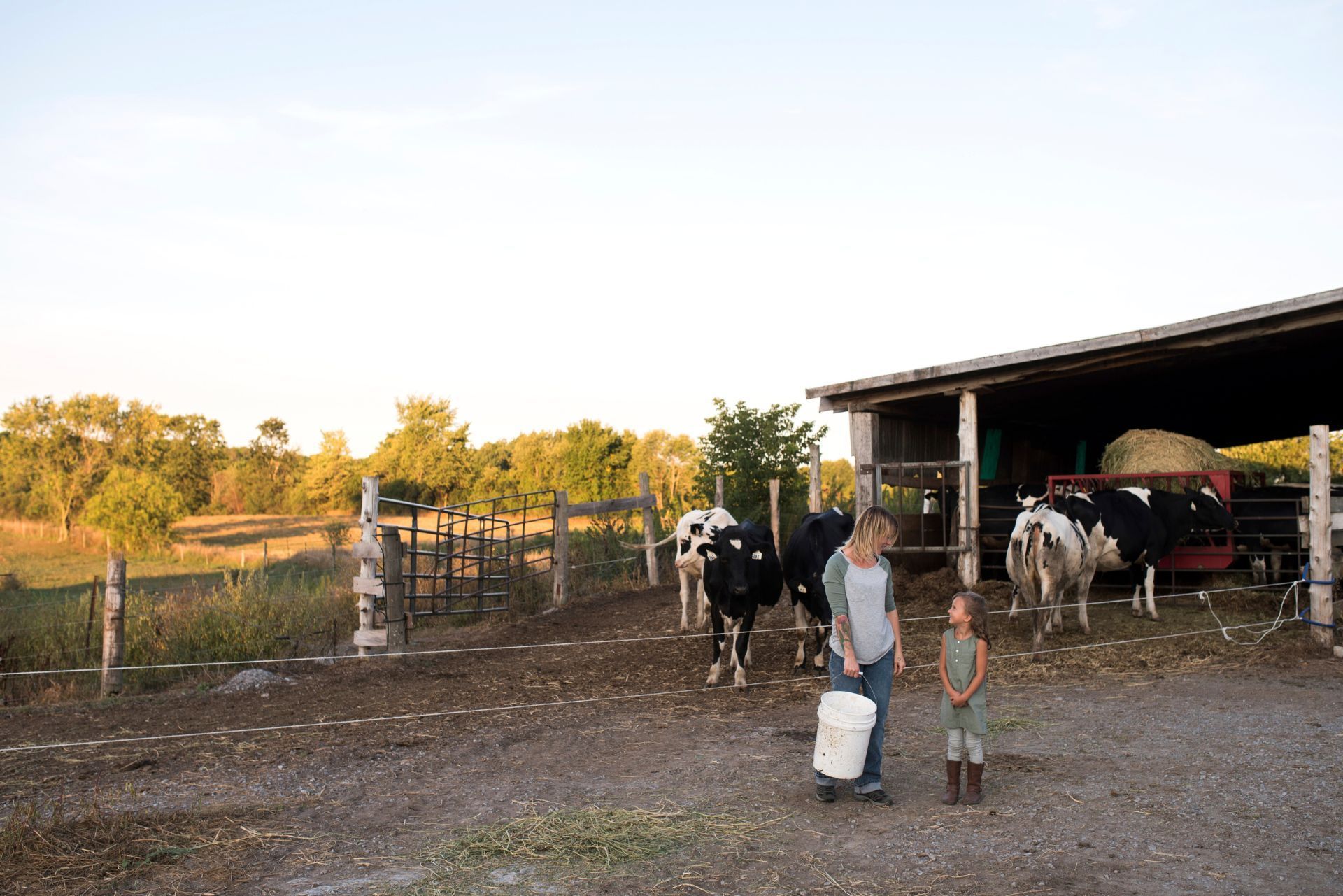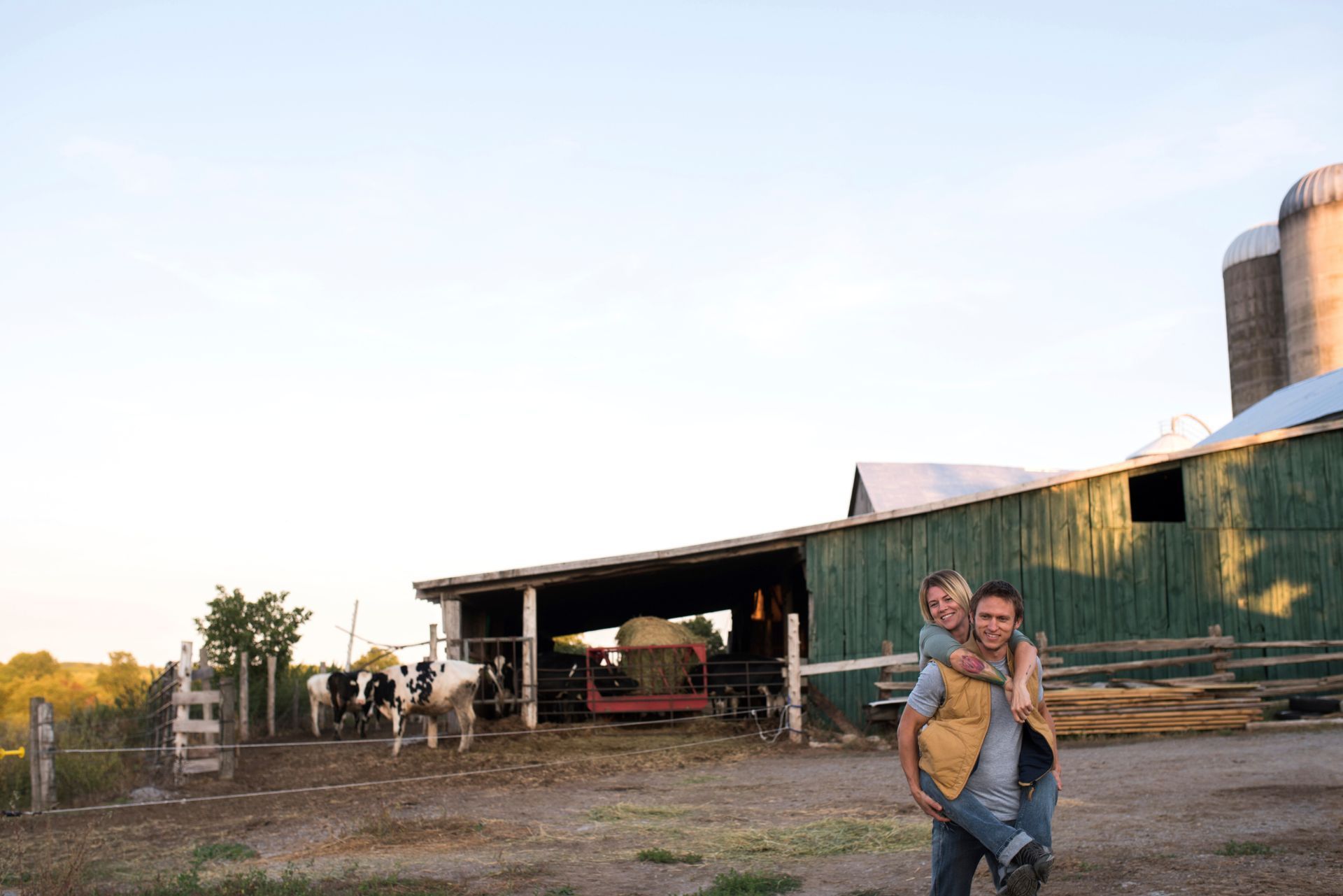
Top 3 Recommended Policies

When it comes to protecting the livelihood of farmers and ranchers in Oklahoma, having the right insurance coverage is essential. The unique challenges faced by agricultural operations require specialized insurance solutions tailored to their specific needs. This article delves into the various aspects of farm and ranch insurance in Oklahoma, including types of coverage, factors to consider, and tips for selecting the right policy.
Understanding Farm and Ranch Insurance
Farm and ranch insurance is designed to protect agricultural operations from various risks, including natural disasters, equipment breakdowns, and liability claims. Unlike standard homeowners or business insurance, this type of coverage takes into account the unique aspects of farming and ranching, such as livestock, crops, and specialized equipment.
What Does Farm and Ranch Insurance Cover?
The coverage provided by farm and ranch insurance can vary widely depending on the specific policy and the needs of the operation. Common coverage options include:
- Property Coverage: This protects buildings, equipment, and personal property associated with the farm or ranch.
- Crop Insurance: This covers losses due to natural disasters, pests, or disease affecting crops.
- Liability Coverage: This protects against claims made by third parties for bodily injury or property damage.
- Livestock Coverage: This provides protection for livestock against theft, injury, or death.
Why Is Farm and Ranch Insurance Important?
Insurance is a critical component of risk management for farmers and ranchers. The agricultural sector is inherently risky, with factors such as weather conditions, market fluctuations, and regulatory changes affecting operations. Having comprehensive insurance coverage helps mitigate these risks and ensures that farmers can recover quickly from unexpected events.
Moreover, farm and ranch insurance can also include additional endorsements that cater to specific needs, such as coverage for organic farming practices or renewable energy installations like solar panels. These endorsements allow farmers to tailor their policies to reflect the evolving nature of their operations and the increasing importance of sustainability in agriculture. With the rise of climate change concerns, many farmers are also seeking coverage that addresses the impacts of extreme weather events, ensuring they are protected against the financial fallout of such occurrences.
Furthermore, the peace of mind that comes with having adequate insurance coverage cannot be overstated. Farmers and ranchers often invest significant time and resources into their operations, and knowing that they have a safety net in place allows them to focus on their daily tasks without the constant worry of potential losses. This security is particularly vital for family-owned farms, where the livelihood of multiple generations is at stake, and the repercussions of a financial setback can be devastating. By investing in farm and ranch insurance, agricultural producers not only protect their assets but also contribute to the overall stability of the agricultural economy.

Types of Coverage Available
Farm and ranch insurance policies can be customized to fit the unique needs of each operation. Understanding the different types of coverage available is crucial for making informed decisions.
General Farm and Ranch Insurance Policies
These policies typically cover a broad range of risks associated with farming and ranching. They may include coverage for buildings, equipment, and liability, providing a solid foundation for any agricultural operation. General policies can be tailored to meet specific needs, ensuring that all critical aspects of the business are protected. For instance, coverage can be adjusted to reflect the value of the structures on the property, including barns, silos, and storage facilities, which are vital for daily operations and long-term sustainability.
Specialized Coverage Options
In addition to general coverage, farmers and ranchers may require specialized options to address specific risks. Some of these options include:
- Farm Equipment Insurance: Covers machinery and equipment used in farming operations, such as tractors, plows, and harvesters. This coverage is essential, as equipment breakdowns can lead to significant delays and financial losses during critical planting and harvesting seasons.
- Livestock Insurance: Protects against loss or injury to livestock, which can be a significant investment. This type of insurance can cover various scenarios, including theft, disease, and natural disasters, ensuring that farmers can recover from unexpected setbacks.
- Crop Insurance: Offers protection against crop loss due to various factors, including adverse weather conditions, pests, and market fluctuations, ensuring financial stability. Many policies also provide coverage for replanting costs, which can be a lifeline for farmers facing devastating losses.
Liability Insurance
Liability insurance is essential for protecting farmers and ranchers from legal claims that may arise from accidents or injuries occurring on their property. This coverage can help cover legal fees, medical expenses, and damages awarded in a lawsuit, providing peace of mind in an unpredictable industry. Additionally, it can extend to cover incidents involving farm visitors, such as agritourism activities, where the public interacts with the farm environment. This aspect of liability insurance is increasingly important as more farms diversify their operations to include tours, events, and educational programs, thereby increasing their exposure to potential claims.
Moreover, liability insurance can also encompass product liability coverage, which protects farmers against claims related to the food products they sell. In today's market, where food safety is paramount, having this coverage can safeguard against the financial repercussions of a foodborne illness outbreak linked to their products. This comprehensive approach to liability not only protects the farmer's assets but also helps maintain consumer trust in their operations.
Factors to Consider When Choosing Insurance
Selecting the right farm and ranch insurance policy requires careful consideration of several factors. Understanding these elements can help ensure that the chosen coverage adequately protects the operation.
Assessing Risk
Every farm and ranch has its own unique set of risks based on location, type of operation, and other factors. Conducting a thorough risk assessment can help identify potential vulnerabilities and guide the selection of appropriate coverage. This may include evaluating the likelihood of natural disasters, equipment failures, and liability exposure. For instance, farms located in flood-prone areas may need additional coverage for water damage, while those in regions prone to wildfires might consider policies that specifically address fire-related losses. Additionally, understanding the specific livestock or crops being raised can inform decisions about coverage tailored to protect against disease outbreaks or pest infestations.
Understanding Policy Limits and Deductibles
Policy limits refer to the maximum amount an insurer will pay for a covered loss, while deductibles are the out-of-pocket expenses the policyholder must pay before insurance kicks in. Understanding these terms is crucial for ensuring adequate coverage. Higher limits may provide more protection, but they often come with higher premiums. Conversely, lower deductibles can lead to higher out-of-pocket costs in the event of a claim. It's also important to consider how these factors interact with the overall financial health of the operation. For example, a higher deductible might be manageable for a well-established farm with steady income, but could pose a significant risk for a smaller or newer operation that is still building its financial foundation.
Comparing Quotes from Different Providers
Insurance premiums can vary significantly between providers, making it essential to compare quotes. When obtaining quotes, consider not only the price but also the coverage options, customer service reputation, and the insurer's financial stability. A comprehensive comparison can help identify the best value for the specific needs of the operation. It's also beneficial to look for insurers that specialize in agricultural coverage, as they may offer tailored policies that better meet the unique needs of farm and ranch operations. Additionally, seeking feedback from fellow farmers or ranchers about their experiences with different providers can provide valuable insights into the claims process and customer support, further aiding in the decision-making process.
Common Exclusions in Farm and Ranch Insurance
While farm and ranch insurance provides extensive coverage, there are common exclusions that policyholders should be aware of. Understanding these exclusions can help in managing risks more effectively.
Natural Disasters
Many policies may exclude certain natural disasters, such as floods or earthquakes, unless additional coverage is purchased. Farmers and ranchers should assess their geographical risks and consider supplemental policies if they operate in areas prone to such events. For instance, regions near rivers or coastal areas may be particularly vulnerable to flooding, while those situated along fault lines should be aware of the potential for seismic activity. Investing in flood insurance or earthquake coverage can be a prudent decision, as the aftermath of such disasters can lead to significant financial losses and recovery challenges.
Negligence or Poor Maintenance
Insurance policies typically do not cover losses resulting from negligence or lack of proper maintenance. It is crucial for farmers and ranchers to maintain their equipment, buildings, and livestock to avoid potential claims being denied due to neglect. Regular inspections and maintenance schedules can help identify issues before they escalate into costly problems. Additionally, documenting maintenance activities can provide valuable evidence in the event of a claim, demonstrating due diligence and care in managing farm operations.
Acts of War or Terrorism
Most farm and ranch insurance policies exclude coverage for losses resulting from acts of war or terrorism. While these events are rare, understanding this exclusion can help farmers and ranchers prepare for unexpected situations. The impact of such events can be devastating, not only in terms of physical damage but also in the disruption of supply chains and market access. Farmers may want to explore specialized insurance products or risk management strategies that address these unique threats, ensuring that they have a comprehensive plan in place to safeguard their livelihoods against all potential risks.
The Role of an Insurance Agent
Working with a knowledgeable insurance agent can greatly simplify the process of selecting farm and ranch insurance. An experienced agent can provide valuable insights and guidance tailored to the specific needs of the operation. They are not only familiar with the various types of coverage available, but they also understand the seasonal fluctuations and unique risks associated with agricultural operations, from crop failures to livestock health issues.
Benefits of Working with an Agent
Insurance agents can help farmers and ranchers navigate the complexities of insurance policies. They can explain coverage options, assist with risk assessments, and help compare quotes from different providers. This personalized support can lead to better-informed decisions and more comprehensive coverage. Furthermore, agents often stay updated on changes in legislation and insurance regulations that could impact coverage options, ensuring that their clients are always in compliance and adequately protected.
In addition, a skilled insurance agent can assist in developing a risk management strategy that goes beyond just securing insurance. They may suggest preventative measures, such as implementing safety protocols or investing in technology, which can reduce the likelihood of claims and ultimately lower insurance costs. This proactive approach not only safeguards the farm or ranch but also enhances its long-term viability.
Finding the Right Agent
When searching for an insurance agent, consider their experience in the agricultural sector and their reputation within the community. Recommendations from fellow farmers or ranchers can also be valuable in finding an agent who understands the unique challenges of the industry. Additionally, it is wise to evaluate the agent's communication style and availability, as a responsive agent can make a significant difference during critical times, such as when filing a claim or during natural disasters.
Moreover, it may be beneficial to meet with potential agents to discuss your specific needs and gauge their understanding of your operation. Look for someone who takes the time to listen and asks pertinent questions about your farming or ranching practices. A good agent will not only provide you with options but will also work collaboratively with you to ensure that your insurance coverage evolves alongside your business, adapting to changes in production, expansion, or shifts in market demand.

Tips for Managing Farm and Ranch Insurance
Once the right insurance policy is in place, effective management is essential to ensure ongoing protection. Here are some tips for managing farm and ranch insurance effectively.
Regularly Review Coverage
As operations grow and change, so do insurance needs. Regularly reviewing coverage ensures that it remains adequate for the current scale and scope of the operation. This may involve updating property values, adding new equipment, or adjusting liability limits based on changes in operations. Additionally, it’s wise to stay informed about industry trends and changes in local regulations that might affect your coverage. For instance, if new environmental laws are enacted, you may need to adjust your policies to comply with these regulations, ensuring that you are not left vulnerable to potential liabilities.
Keep Accurate Records
Maintaining accurate records of property, equipment, and livestock is critical for insurance management. In the event of a claim, having detailed records can expedite the claims process and help ensure that all losses are adequately documented. This includes keeping track of purchase receipts, maintenance logs, and photographs of your assets. Furthermore, consider using digital tools or software designed for agricultural management to streamline record-keeping. These tools can help you organize information efficiently, making it easier to retrieve when needed, and can also provide valuable insights into your operation's performance over time.
Engage in Risk Management Practices
Implementing risk management practices can reduce the likelihood of claims and lower insurance costs. This may include regular maintenance of equipment, investing in safety training for employees, and developing contingency plans for emergencies. Additionally, consider conducting a thorough risk assessment of your operation to identify potential hazards. This proactive approach not only helps in mitigating risks but can also lead to discounts on your insurance premiums. Furthermore, fostering a culture of safety among your workforce can enhance overall productivity and morale, as employees feel more secure in their work environment.
Conclusion
Farm and ranch insurance is a vital component of protecting agricultural operations in Oklahoma. Understanding the various types of coverage available, assessing risks, and working with knowledgeable agents can help farmers and ranchers secure the right insurance solutions for their unique needs. By taking proactive steps to manage insurance effectively, agricultural operations can thrive even in the face of challenges.
In the ever-evolving landscape of agriculture, having the right insurance coverage not only provides peace of mind but also ensures that farmers and ranchers can focus on what they do best: cultivating the land and raising livestock. By staying informed and prepared, Oklahoma's agricultural community can continue to flourish.
Contact Us

